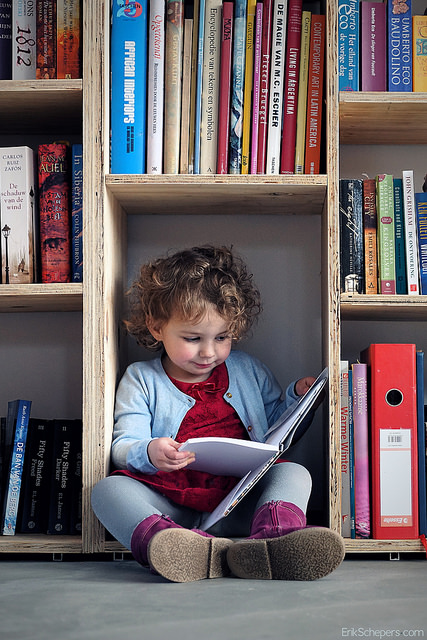We work at a publishing house. We look at manuscripts and produce press releases and cover designs day after day to (hopefully) publish works that we feel hold integrity and have a unique story to tell. We also love reading. We’ve probably always loved reading. It’s kind of understood, you’d assume, that those who devote their time to print books in the days of unedited online articles and torrents ripped off the internet are probably a little into reading. But what about those who simply cannot?
I had never really thought about the people who couldn’t read, until I moved to Oregon. Sure, I had tutored kids who would rather die than read one more page of Jane Austen. But those children can usually be swayed once you find them a book they’re into or a writing prompt that doesn’t make them want to gouge their eyes out. And even if they can’t be swayed, they can at least perfect the skills to read and comprehend when necessary; that is, they have the basic capabilities to at least read the words on a page and probably understand what they say.
Upon moving to Oregon, however, I was hired by an organization that provides in-home skills training and support services to children with developmental and cognitive disabilities. I had never worked with this part of the population in my life, but the interviewers apparently liked my enthusiasm and thought I could handle it. Fast-forward six months to now: I love my job, and I can handle it, but there is something about it that bugs me more than anything else. The education system simply fails to provide for these kids—in the areas where they need the most support.
I see a middle schooler reading Leapfrog books, having little to no confidence in her abilities to advance beyond her comfort zone. I ask her to read me something more advanced, and her first instinct is always “I don’t know!” or “I can’t do that!” Yet when I push her, she can, just perhaps with a little bit of extra assistance and prompting. She has been beaten down by a system that enforces the notion that she cannot read, she cannot learn, she cannot be like everybody else. I see an elementary schooler who is partially verbal, who smacks books out of my hand because she associates them with frustration and impatient teachers. Yet when I take the time to enforce positivity, she quiets her angry hands, laughs at funny parts, and turns the pages for me so I will keep going. How am I supposed to believe that she does not know what is going on when she clearly responds to the words on the page? What part can we play in helping these kids find joy in the written word and progress beyond our education system’s very limited expectations?
We need representation. We need books in which these kids can find themselves represented from a very young age and see themselves accomplishing wonderful things. We need books with accompanying audio to read aloud while they follow the words on the page, to enforce independence, skills training, and developmental progress. We need chapter books of varying complexity that still have associated pictures—picture books should not just be for the youngest members of the population, but should also provide a source of comfort to older individuals who find that black-and-white box of text far too intimidating. We need these and so much more: books that accommodate those who cannot, in order to prove to them that they can.
We need these books to encourage our developmentally different siblings, to enforce the notion that reading is so fundamental and so amazing that we finally want to include everyone in the conversation.

